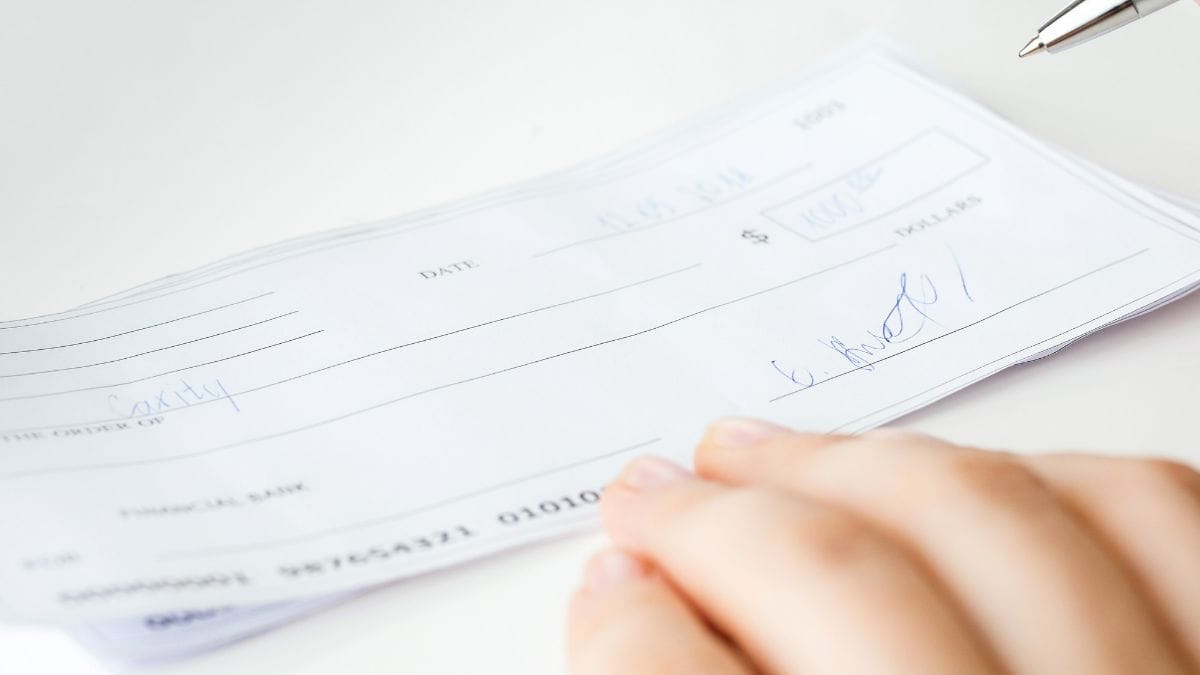Bounced cheques, also known as dishonoured cheques, are a common issue in the UAE. A bounced cheque is a cheque that is returned to the payee due to insufficient funds or other reasons specified by the bank. The issue of bounced cheques in the UAE is taken very seriously by the government and can lead to serious legal consequences for both the issuer and the recipient of the cheque.
In this article, we will discuss the legal implications of bounced cheques in the UAE and the steps that individuals and businesses can take to avoid legal complications.

Legal Framework for Bounced Cheques in the UAE
Cheques are a commonly used form of payment in the UAE, and their dishonour, or bouncing, can have serious consequences for both the payer and the recipient. In the past, the process for dealing with bounced cheques in the UAE could be time-consuming and complex, often involving lengthy legal proceedings.
To address this issue, the UAE government has approved amendments to the Commercial Transactions Law, which provide a clearer legal framework for dealing with bounced cheques. These amendments, which came into effect in December 2020, aim to streamline and improve the enforcement of cheques in the country.
Under the new provisions, individuals who issue cheques with insufficient funds are no longer subject to criminal charges under the new UAE law, Federal Decree Law No. (14) of 2020. As a result, if you receive a bounced cheque due to insufficient funds, your only recourse is to pursue a civil case.
Furthermore, in cases where a cheque bounces due to insufficient funds, the recipient can pursue the recovery of the amount through a performance order case. A performance order is a means of obtaining payment for specific debts without the need for a court hearing, as long as there is written evidence of the debt. Under the new UAE law, a bounced cheque can serve as sufficient evidence to request the enforcement of payment through the assets or bank accounts of the issuer. To begin the process of recovering funds from a bounced cheque, the recipient or their legal representative must fill out a Cheque Execution Regulations Form.
A bounced cheque due to a closed account or inconsistent signature can be considered a criminal case. In such situations, the recipient can file a criminal complaint with the police authorities. This is because these actions are classified as fraud.
If a bounced cheque is found to be the result of fraudulent means, the defendant will be required to serve the penalty as determined by the judge hearing the case. It is therefore important to be aware of the circumstances that may result in a criminal case, as opposed to a civil case, when dealing with bounced cheques in the UAE.
Reporting Bounced Cheques in UAE
If you need to report a bounced cheque to the police in the UAE, you must first determine whether the reason for the dishonour falls under a criminal violation. If it does, there are several ways to file a complaint. One option is to download the MOI UAE smartphone application and submit your complaint through the Ministry of Interior’s platform. This method is required if you live in Abu Dhabi, Sharjah, Ajman, Umm Al Quwain, Ras al Khaimah, or Fujairah. Alternatively, if the cheque was issued in Dubai, you can use the Dubai Police mobile application to file a complaint directly with the Dubai Police. Finally, regardless of where the cheque was issued, you can visit your nearest police station to report the bounced cheque.
If a police case is filed against an individual for issuing a bounced cheque in the UAE, the police will register the case and assign a file number, after which a travel ban and arrest warrant may be imposed on the accused. If the accused is detained by the police, the case will then be transferred to the public prosecution once the accused has provided their statement. It is important to be aware of the potential consequences of issuing a bounced cheque, as it may result in legal action and travel restrictions.
How to Avoid Bounced Cheques in the UAE
Bounced cheques can have serious legal and financial consequences for individuals and businesses in the UAE. To avoid such complications, it is important to take certain precautions when issuing cheques. Here are some steps that can be taken:
- Ensure that sufficient funds are available in the account before issuing a cheque. It is important to have enough funds in the account to cover the full amount of the cheque to avoid it bouncing due to insufficient funds.
- Confirm with the bank that the account is not frozen or closed before issuing a cheque. This can be done by contacting the bank directly or checking the account balance through online banking or an ATM.
- Avoid issuing post-dated cheques unless absolutely necessary. Post-dated cheques can be risky as the recipient may attempt to cash the cheque before the intended date, resulting in the cheque bouncing due to insufficient funds.
- Keep accurate records of all cheque transactions. This includes recording the date, amount, recipient, and purpose of the cheque. This can help to avoid confusion and disputes later on.
- In addition to these steps, electronic payment methods such as wire transfers, online banking, and credit card payments can be used as an alternative to issuing cheques. These methods are generally more secure and reliable, and can help to avoid the risk of bounced cheques altogether.
Taking these precautions can help to prevent legal complications and financial losses related to bounced cheques in the UAE. It is important to be aware of the risks associated with issuing cheques and to take appropriate measures to protect oneself from potential consequences.




